Ukraine needs transformation. Zhytomyr Mayor Serhiy Sukhomlyn on the first days of the war, the fight against corruption, and major changes
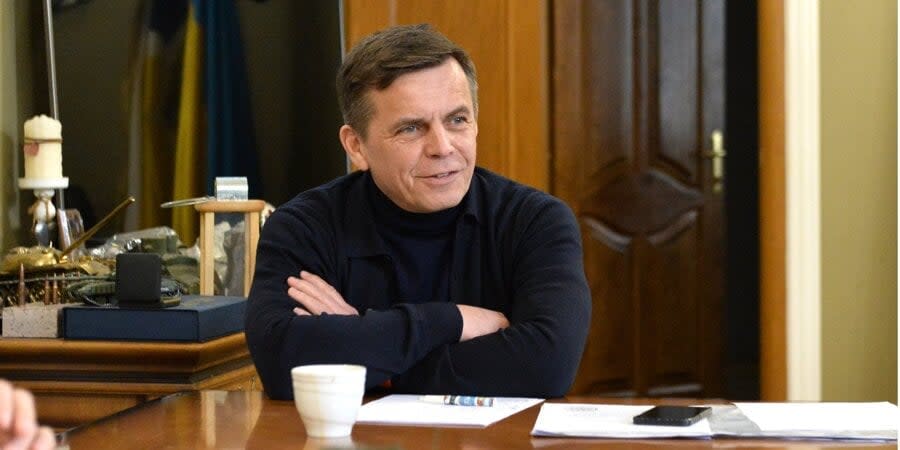
In addition, a huge number of projects are being implemented in Zhytomyr with the support of international partners and donors, which require increased transparency and the implementation of anti-corruption measures. As the mayor admits, this sometimes leads to additional difficulties, as personnel changes can be presented in a distorted way in the media, without a hint that the municipality itself is initiating investigations of abuses in the utility sector.
In an exclusive interview with NV, Sukhomlyn spoke about his city’s actions in the first hours and days of the war, its experience working with foreign partners, and how the city has refused to give the name of its famous native son, Serhiy Korolyov, to the Russians.
Big plans, Russian planes, and Ukrainian Neptunes
NV: You have higher military education. Did you expect the invasion to be so massive?
Sukhomlyn: I analyzed information from open sources: how many troops were in Belarus, and how many were in Russia. I understood that this number was insufficient for a successful large-scale offensive. I believed that there would be an escalation in the east, and that the forces in Belarus would serve as a distraction so that we didn’t commit more forces to the East. But what happened... there was no logic in this.
NV: How did you meet the beginning of the war?
Sukhomlyn: The first missile attack on Zhytomyr was carried out at approximately 4:00 am. Around 5:00 am, I spoke with our military. At 6:00 am, our vehicles went to take out missiles from a facility in Zhytomyr Oblast. In total, they took out about 800 Stugnas and Corsairs. Then they took out the Neptunes, which went to the Odesa area, and it was from them that [the sunken cruiser Moskva] was...
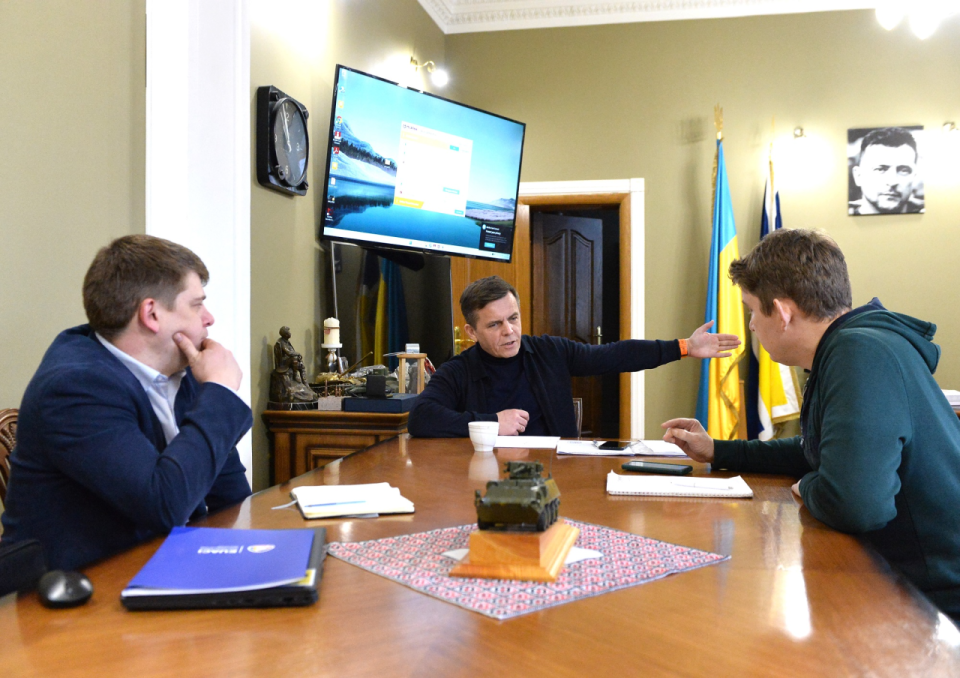
NV: Chernivtsi and Chervonohrad call themselves the deep rear. Is it possible to talk about Zhytomyr like that?
Sukhomlyn: Absolutely not. We can say that at the beginning of the war, we did not have air defense - only two units with Perun MANPADS. [The Russian] jets flew in from Belarus and dropped 250 and 500 kg [bombs] from a height of 100-150 m. There were missile strikes on the hospital, the water supply, the heating plant, and industrial enterprises. The oil terminal was completely destroyed. People were killed.
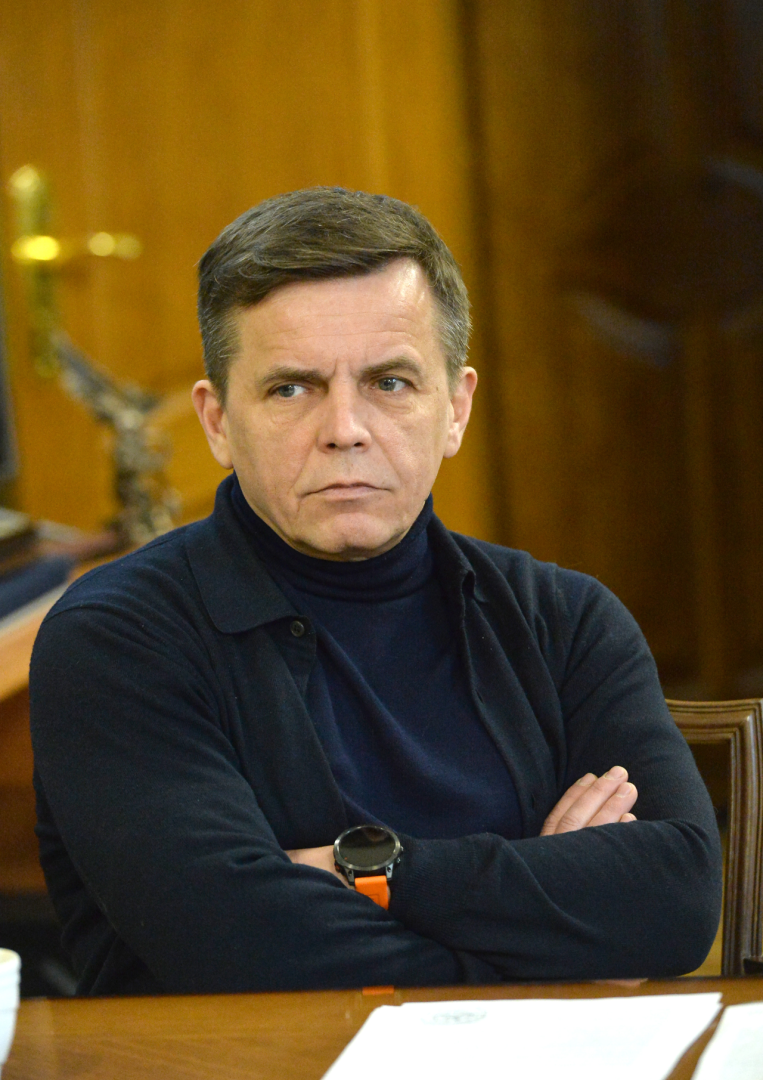
There were 36 missile strikes on the military airfield near Zhytomyr alone, along with 24 strikes on the tank training ground.
NV: Given these conditions, what of your 2022 plans did you manage to implement, and what did you have to give up?
Sukhomlyn: We planned the construction of a hockey rink and a sports arena, as well as the reconstruction of the runway of our airport, which received international status in 2021. Using state funding, major repairs and reconstruction of the overpass at the entrance from the Kyiv highway were planned for UAH 450 million ($12.1 million). In parallel, the Ministry of Infrastructure carried out works on the electrification of the Zhytomyr–Novohrad-Volynskyi rail corridor. This would allow a large number of trains to pass through Zhytomyr, including on international routes.
But the war postponed these plans.
NV: Was the city able to manage anything?
Sukhomlyn: With financing from a World Bank loan, we are actually building a new water supplying canal. A complete reconstruction of the main sewage station is also underway.
All these works were stopped on the 24th. It took 6-8 months to renegotiate all the procedures with the World Bank, the Ministry of Finance, and the Ministry of Regional Development.
And since around April 2022, we’ve started preparing for the heating season.
NV: So early?
Sukhomlyn: Even then we understood that getting through the next heating season would be difficult enough. To be honest, we didn't expact Russia striking the energy infrastructure, but we expected problems with gas supplying. Therefore, we created alternative heating during the summer - wood-fired boiler rooms and modular boiler rooms. We also began to connect and duplicate city boiler houses, of which there are more than 40.
When Russia began to strike at energy infrastructure facilities, the city council voted at a session to allocate funds for the purchase of generators for boiler houses and critical infrastructure facilities.
NV: Did this have a positive impact on the city’s livelihood during the winter?
Sukhomlyn: Yes. We had almost no power outages. This happened both due to the high-quality coordination of actions with energy companies, and thanks to the projects implemented earlier, like the replacement of our streetlights.
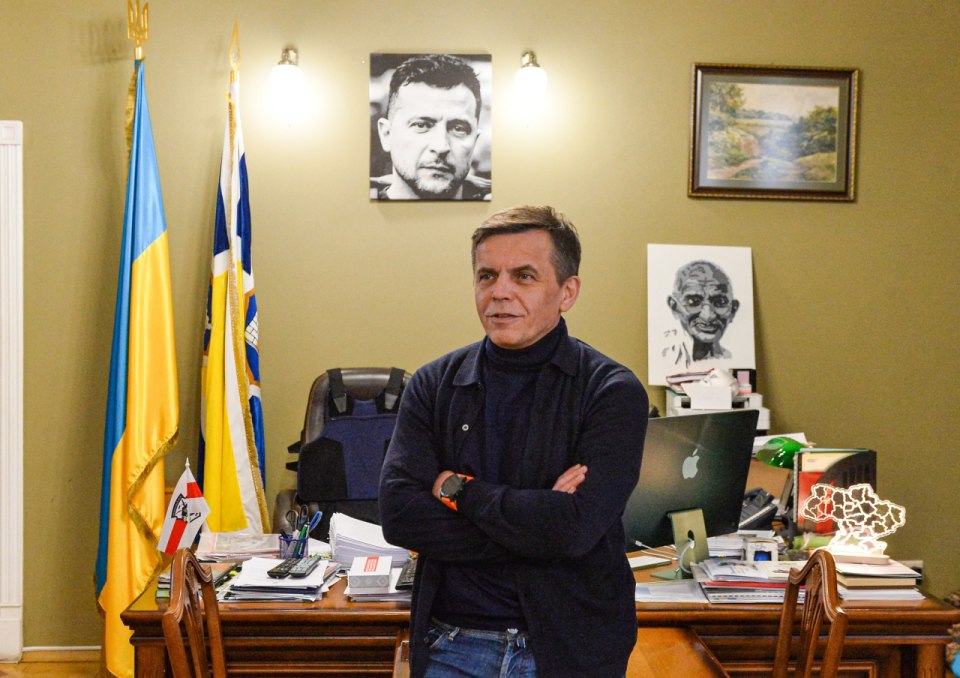
Cooperation with EUACI
It all started in 2018 with negotiations and meetings.
"We understood that cooperation between the Zhytomyr City Council and the EU’s largest anti-corruption program would be useful," recalls Borys Pakholiuk, director of the City Development Agency municipal institution.
According to Serhiy Yatsyk, advisor to Zhytomyr’s mayor, active cooperation began at the beginning of 2019. Since then, the EU Anti-corruption Initiative has been involved in the creation and deployment of the Zhytomyr City Council's Geoinformation System, although public access to it is limited during martial law. Seven modules are already working, and the development of two more subsystems has started.
Corruption risks were assessed in City Council activities like public procurement; land relations; architecture and urban planning; management real estate property. The city also developed an Integrity Plan based on identified risks. The development of an electronic portal for the Zhytomyr City Council is underway
Two sources for the city budget
NV: How was your situation with filling the budget?
Sukhomlyn: There are two important components in the revenue part of the city budget. The first is business. Part of Zhytomyr Oblast was occupied by Russian troops, so we did not have enterprises from the east and south relocate here.
NV: Did local business cease operating?
Sukhomlyn: Yes. But when Zhytomyr Oblast was liberated in March, we started holding meetings with representatives of local enterprises and convinced them to start working again. We have many large enterprises with foreign capital…
NV: Kromberg & Schubert, EuroGold…
Sukhomlyn: And others, where many Zhytomyr residents work. They did not want to take responsibility for people's safety. For example, Kromberg & Schubert employs more than 2,000 people. Together with the military, we provided advice on how to protect personnel during air raid alerts. We thought about a nighttime ransit service using municipal transport. Almost 90% of businesses had resumed operations by the end of March.
If we analyze 2022, we received about 85% of what we had planned from businesses. This is absolutely not enough under normal conditions. But Government Resolution No. 590 forbade the use of the budget for capital expenditures. Therefore, we had enough to provide for the city's activities.
Here we mention the second important component of filling the budget. Zhytomyr and the oblast has always had a concentration of military units. On the second day, we already had lines 500 meters long at the military commissariat for those who wanted to volunteer for service. It was necessary to create several separate battalions and even a separate brigade. Taxation of their salaries completely covered the budget deficit.
NV: This is what all your colleagues with whom I spoke talking about...
Sukhomlyn: Yes. But there is another side of the coin. In 2022, the Zhytomyr city budget spent approximately UAH 300 million (USD 8.1 million) on the needs of the military. It is better that we spend now from the budget to help, than later to restore what has been destroyed.
NV: How useful and necessary are the anti-corruption tools that European partners helped you implement in the city council’s activities?
Sukhomlyn: Zhytomyr has been working on international projects for many years: with foundations, banks, and various programs. There are three necessary components to work with these organizations. 1) A team that can prepare and justify the feasibility of the project. 2) A team that can implement the project. And 3) transparency, because if there are problems with one project, the next one will not be agreed upon.
For example, we involved Slovenian companies in work on our water supply. They had experience in Ukraine where tenders were canceled. Therefore, when everything was successful in Zhytomyr, we received EUR 2.9 million in additional grant funding from the Slovenian government.
NV: So you received an additional bonus?
Sukhomlyn: Yes. Transparency is beneficial. We can say what we want to get into the EU. But sometimes we do not want to prepare for the EU’s requirements. Therefore, for us, cooperation with EUACI is important in terms of the city’s prospects. If we have this mentality, we can get much more from our Western partners.
NV: How does your community think about the introduction of new digital tools?
Sukhomlyn: There are two sides here. For our external partners, this is an opportunity to demonstrate the city’s transparency, and to attract additional investments, grants, and loans. On the other hand, there is the internal consumer. For example, the geoportal of open data. A small example: advertising billboard spaces in Zhytomyr are indicated on the digital map of the city. Anyone can come in and have a look. Access to this kind of information removes a lot of questions and deters people who want to place an advertising structure without following procedures.
The potential of IDPs
NV: How big of a challenge was it to work with IDPs?
Sukhomlyn: Zhytomyr received a relatively small number of displaced people compared to other regional centers. In the first months of the war, we were more involved in evacuating people from Bucha and Irpin. Then people were sent by train from Zhytomyr to western Ukraine or abroad.
At the beginning of March, when Russia’s forward units were 35 km outside the city, we sent children with cancer, and their families, from the entire oblast, to Switzerland. They still receive free accommodation, food, medical treatment, and transport services there.
NV: And yet how many IDPs do you have?
Sukhomlyn: Officially, approximately 12,000. In reality, according to our estimates, there are about 20,000 of them, but not all of them are registered.
NV: How is the delivery of humanitarian aid organized?
Sukhomlyn: As soon as displaced people come to an Administrative Services Center, they are immediately provided with appropriate assistance. We have stocks of clothes, food, and hygiene products.
NV: Is this process coordinated by the city council?
Sukhomlyn: Yes, but there are several organizations that work independently, including UNICEF, Caritas, and others. Every day, we provide more than 300 hot lunches with the help of the Italian organization Caritas.
During this year, UAH 42 million (USD 1.1 million) in payments for IDPs from international organizations passed through us. There were also payments from the city budget.
NV: How difficult is your work with IDPs?
Sukhomlyn: I perceive it as an opportunity. Our main task is to keep these people in Zhytomyr, because I understand that a large number of Zhytomyr residents who went abroad will not return to us. Sociologists say that one year of war has meant an up to 20% reduction in population.
NV: And how many left Zhytomyr?
Sukhomlyn: Before the war, 263,000-264,000 people lived here. In March of last year, approximately 40-45% of the city's residents left. Today, about 15-20% [about half of those who left - ed.] did not return.
Therefore, we were the first in Ukraine to sign an agreement with the European Commission on the construction of housing for IDPs. They are providing EUR 8 million for high-rise buildings. The city council will co-finance EUR 2 million for the design, installation of communications, the foundation, and the bomb shelter.
In total, this will provide for up to 300 apartments, which we will distribute, including among IDPs. For example, to doctors.
With the participation of the Italian Red Cross, we have until May 10 to build 40 houses of 45 square meters with all amenities, a central water supply, and sewage.
Negotiations have also begun for another grant for the construction of multi-apartment buildings.
NV: Does your peacetime experience of implementing transparency and accountability tools help you in negotiations on humanitarian issues?
Sukhomlyn: Definitely. The other day I had a conversation with the European Investment Bank. We presented them with projects for financing the construction of a new kindergarten and an oncology center. They were also interested in the construction of a hospital, through which we want to centralize part of the hospitals scattered throughout the city.
There are mandatory conditions from them, namely having a team ready to make the project happen and who have experience in successfully implementing other projects. When you communicate with them in the same language for all procedures (from consultants to purchasing), it has a positive effect. When you talk about cooperation with the EUACI, it means that transparency and compliance with all procedures are also very important to us. And for them this is a convincing argument.
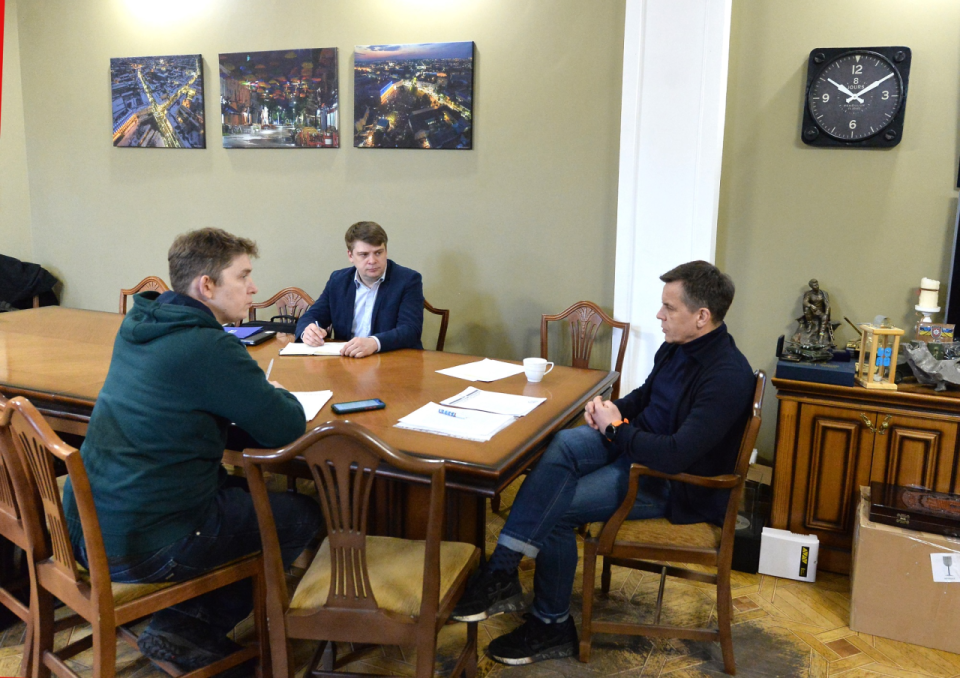
Wartime assistance
The full-scale invasion forced the city council to quickly rearrange how it operated. It is worth noting that the leadership of the EU Anti-Corruption Initiative responded flexibly and with understanding to new wartime challenges by assistance to the city council with generators, drones, and walkie-talkies. The assistance was used in accordance with the current operational needs of the communal enterprises that keep life going in the city.
Sport, knowledge, and prospects
NV: How do you see Zhytomyr in the future? Because there is a stereotype that this is a provincial city with traditional values which has no room for drastic changes...
Sukhomlyn: During the elections, I said that Zhytomyr reminds me of a big train station, because people from villages and district centers sent their children to us for education. And those children, after finishing school, looked for work in Kyiv and other cities and moved on.
At first glance, Zhytomyr is a provincial city. But it is cozy and calm. And especially during the war, this is a huge advantage. Today it is very difficult to rent an apartment here. Even people from Kyiv, like bank employees who can work remotely, are moving here.
Five years ago, we thought about our development strategy. We understood that we cannot be as attractive in historical terms as Lviv, and that we do not have a sea like Odesa. But we need to find our niche.
NV: What might that niche be?
Sukhomlyn: I really liked the strategy of the city of Indianapolis, which in 20 years became the sports capital of the USA. They started with small steps. For example, they took sports federations, let's say, from the second tier, which have a relatively small number of fans. And they built sports infrastructure facilities for them, but the best in the U.S. And when it came time for this sport to hold its championship, the choice was obvious: Indianapolis. When cooperation began with 20 sporting federations, there were 2 high-level competitions in the city almost every month. The processes had started.
That's why we started building both a hockey rink and a sports arena.
NV: All I know [of Zhytomyr sports] is FC Polissya, which was bought by the owner of the ATB grocery chain, Hennadiy Butkevich.
Sukhomlyn: But he wasn't there either... When we brought up the issue of creating a communal football club at the city council session, many people said: "What are you doing?" And two years ago, a powerful investor appeared, to whom we transferred the team. We have already received a football stadium project from our twin city of Gdynia in Poland. A private investor is ready to invest EUR 15-16 million and build here.
We already have a powerful dragon boat venue, whose young athletes brought 9 sets of gold medals to the European Championship last year. Sports can bring huge revenues to the budget.
NV: Is it possible to generate large revenues from cultural and sports events in Ukraine?
Sukhomlyn: We have a small aviation club, with whom we worked with to hold the Korolyov Aviation Fest. In 2021, 120,000 people attended it.
And if there are 20 such sports?
NV: You mentioned the name of your compatriot, Serhiy Korolyov, who is also claimed by Russia. Are you fighting for his heritage and brand?
Sukhomlyn: About three or four years ago, we learned through Ukrainian intelligence that Russia wants to rename the Moscow Domodedovo airport in honor of Korolyov. Together with the then-owners of the Zhytomyr airport, we re-did the documents in 4 days, submitted them to the Ministry of Infrastructure, and named the Zhytomyr airport in honor of Serhiy Pavlovich Korolyov. Russia simply did not have time.
So, we try to keep it under control.
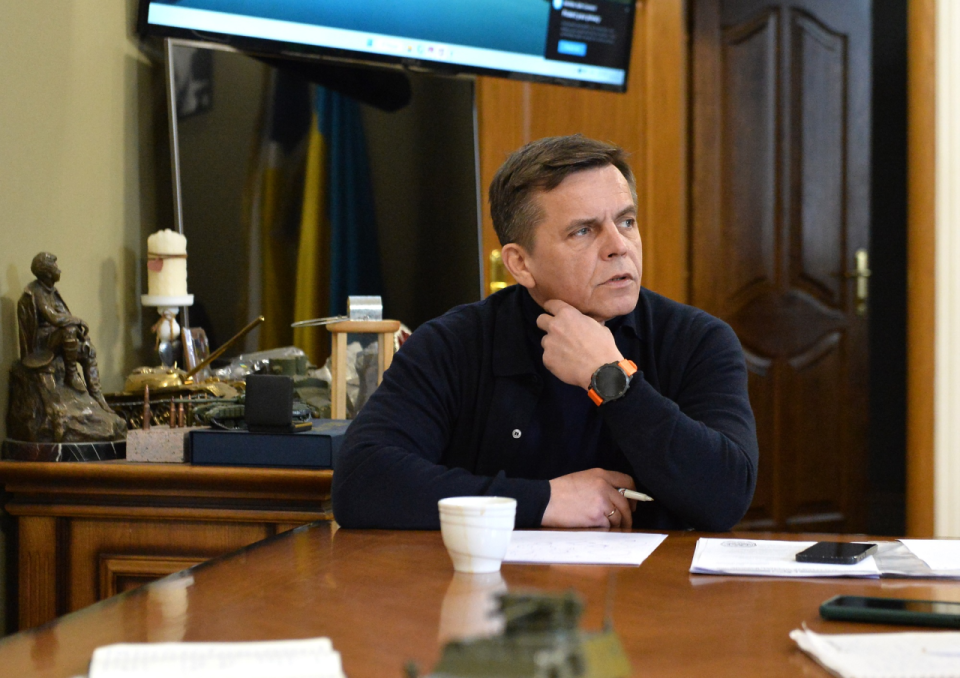
NV: In addition to sports, what should form the economy of the city after the war?
Sukhomlyn: When we talk about the reconstruction of Ukraine, I don't like the term "restoration." Ukraine cannot afford to simply restore what was because we will not get new quality from that. Ukraine needs rapid transformation.
But when we were making assessments for ourselves about the creation of an IT cluster, we realized that it was not yet possible in Zhytomyr. First, a cluster comes about when a new product comes out, not when work is outsourced to others. And the second important argument came from my discussions with the heads of large IT companies. There is no school in Zhytomyr with quality education even at Kyiv’s level.
NV: A technical university?
Sukhomlyn: No. We’re talking about high school. IT workers can come to us, because it is convenient here. But they understand the importance of education and want to give their children opportunities in the future. The quality of education available is a very important argument for them when moving.
On March 4, our Lyceum No. 4 was destroyed by a rocket attack. I have a dream that this school will become a symbol of Zhytomyr's recovery and victory. Currently, there is no curriculum for high schools in Ukraine. Therefore, we created a team whose main task is to write a program for this school and defend it at the Ministry of Education so that children can study with it – to restore [the lyceum] in a completely different format, both externally and internally.
NV: Will this be a pilot program for all of Ukraine?
Sukhomlyn: If it succeeds, then yes.
Many of Ukraine’s prospects depend on how we ourselves treat the question of our future. By simply restoring what was before, we will not be able to compete with Europe. Even for the return of those who left, additional arguments are needed.
NV: In this case, what are the economic prospects of Zhytomyr and Ukraine?
Sukhomlyn: It is difficult for me to talk about Sumy, Chernihiv and other eastern cities, because foreign investors will not enter these cities in the next 5-7 years. They will have fears, because our neighbor (Russia - ed.) is not going anywhere, even after victory.
Western Ukraine is over-saturated. There is a shortage of workers. Therefore, central Ukraine has prospects.
If we look 2-3 years ahead, there could be a conflict over Taiwan.
NV: And we will become a European China...
Sukhomlyn: We will have this kind of opportunity. It depends on the government, on local councils, and how they are able to accept foreign investments that came here during the coronavirus.
NV: Is something happening in Zhytomyr?
Sukhomlyn: In September, private investors began testing a waste processing plant. We are waiting for the Croatian contractors to come again and increase its processing capacity to 80-85%.
The Italian company Ferplast, which has been working in Zhytomyr for 15 years, resumed the expansion of the factory for the production of pet accessories. They are bringing in equipment.
We are negotiating with another large enterprise about an investment of EUR 20 million.
If we consider the oblast, then a woodworking cluster has huge opportunities. More than EUR 300 million have already been invested in this industry in Korosten alone.
The second prospect is an agrarian cluster. Our Polissya University is becoming a provider for this. There are already many businesspeople working in organic farming, which requires the processing of agricultural products. After all, logistics will be difficult for a long time, and it is more profitable to export processed products.
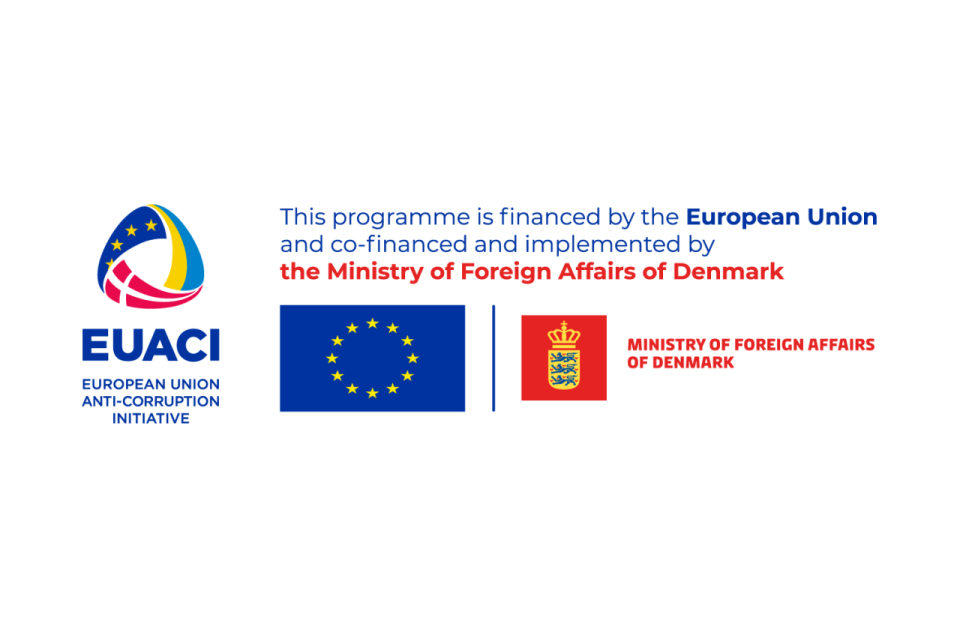
The project was created with the support of the EU Anti-Corruption Initiative in Ukraine (EUACI)
Read also:
We’re bringing the voice of Ukraine to the world. Support us with a one-time donation, or become a Patron!
Read the original article on The New Voice of Ukraine

